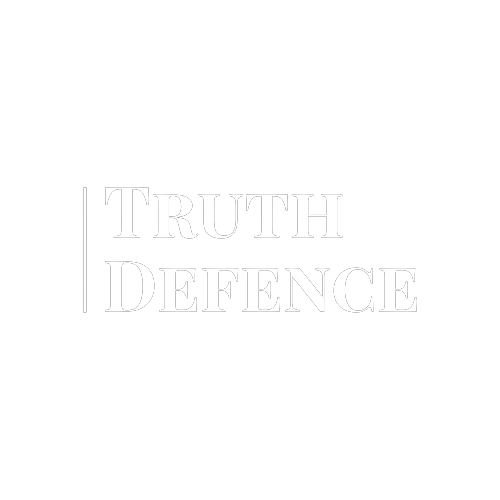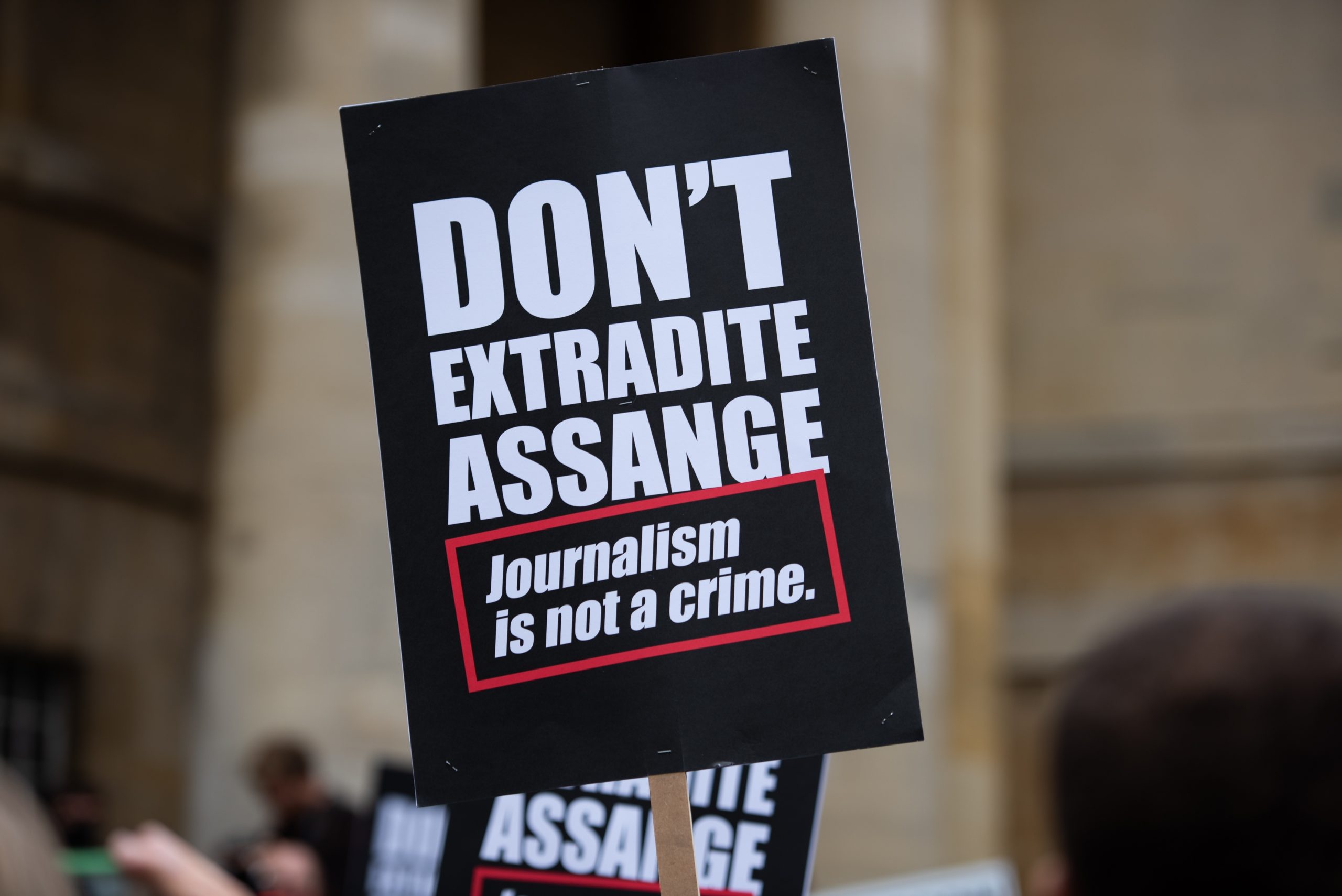Make no mistake, despite the High Court ruling that the extradition of Julian Assange would not be an abuse of his human rights, this is a significant human rights issue – not just because the UK would be sending a man to a country that plotted to assassinate him and not just because of the risk of torture that he faces while serving a life sentence in prison when he gets there, but because the establishment blueprint for passing laws that undermine our rights and liberties usually begins with a scapegoat.
A Dangerous Precedent
For the first time in the history of the United States, its government has brought criminal charges under the Espionage Act for the publication of factual information. Less than two weeks before the Home Secretary Priti Patel signed the extradition order, legislation to ‘reform’ UK espionage legislation was read in parliament for the first time that would criminalise journalists who reveal the wrongdoing of the military and intelligence services.
A remarkably large number of the draconian Bills that have been presented in Parliament by the current Conservative government have been preceded by a media campaign against an individual, or group of people, to whom the blame can be passed. They are usually widely disliked or made unlikeable through relentless negative coverage and smears.
This was achieved with the Public Order Bill and the Policing Bill, using environmental activists such as Extinction Rebellion and Just Stop Oil to erode the right to protest, they managed to convince the wider public to overlook the world’s largest fossil fuel companies quietly lobbying the UK government or the fact that environmental activists have been placed on terrorist watchlists since the 1970s.
Julian Assange is the central figure in the government’s attack on press freedom. They would have us believe that it is the way in which Wikileaks released documents to the public that forms the basis of his wrongdoing, rather than what the contents of those documents were. They would have us overlook the Snowden revelations that GCHQ considers investigative journalists as a threat on the same degree as terrorism and that in 2008 GCHQ spied on journalists from some of the world’s largest media organisations.
No evidence of harm as a result of Wikileaks disclosures has ever been identified by the US, which has accused Assange of publishing unreacted, classified documents that revealed names of people who provided information to the US and its allies. In 2020, a US court heard from former Der Spiegel reporter John Goetz, who alongside The Guardian, The New York Times and Wikileaks, worked on the Afghan files.
He told the court that Wikileaks held back 15,000 documents in order to prevent harm and that it had an extensive redaction process in place. “With the Iraq War Logs, WikiLeaks overshot and ended up deleting more things than even the Defence Department did in [in response to] FOIA requests,” he told the court. He also explained that unredacted documents, which were released by Wikileaks, were either unclassified or had already been published on the internet elsewhere.
Wikileaks disclosures revealed hundreds of unreported civilian deaths in Iraq and Afghanistan and verified secret drone strikes in Yemen by the US. They revealed details of a secret US intelligence campaign that targeted the UN leadership and that Guantanamo prisoners were hidden from Red Cross inspectors and kept in isolation for weeks to make them more compliant. It is undeniable that the charges brought against Julian Assange are politically motivated; not just to punish him for revealing US war crimes but to set a precedent for the sorts of journalism that the government does not like.
The High Court Ruling
In December 2021, the High Court ruled that Assange could be extradited to the United States based on written assurances submitted by the US, which promised that if extradited, Assange would not be held in a maximum security prison or be subjected to prolonged solitary confinement. Responding to the Supreme Court’s decision to refuse Assange’s appeal against the ruling, Amnesty International’s Deputy Research Director for Europe Julia Hall, said:
The Supreme Court has missed an opportunity to clarify the UK’s acceptance of deeply flawed diplomatic assurances against torture. Such assurances are inherently unreliable and leave people at risk of severe abuse upon extradition or other transfer… Prolonged solitary confinement is a key feature of life for many people in US maximum security prisons and amounts to torture or other ill treatment under international law.
Prior to the High Court ruling in December, Declassified UK revealed that the appeal judge who decided in favour of Assange’s extradition is a close personal friend of Sir Alan Duncan, the minister that arranged his eviction from the Ecuadorian embassy and who referred to the “supposed human rights of Julian Assange” in his diaries in which he also admits to organising a “hit piece” in the Daily Mail that was published the day after Assange’s arrest.
Declassified UK also revealed in March 2022 that Priti Patel “has been a political adviser to – and been funded by – a right-wing lobby group which has attacked Assange in the British media for a decade”. The Henry Jackson Society (HJS) has direct links to the CIA and Patel sat on its advisory council with the wife of a judge who made key rulings in the Assange case.
Less than two weeks prior to Patel’s decision the former CIA director and US Secretary of State Mike Pompeo was summoned to testify in a Spanish Court to explain an alleged assassination plot against Julian Assange. The court is investigating whether a Spanish security firm, UC Global, spied on Assange while he was residing in the Ecuadorian embassy and supplied surveillance footage and audio recordings to persons linked with the CIA.
Additionally, only a week prior to Patel signing Assange’s extradition order, the government admitted to spying on his lawyer, Jennifer Robinson, and sharing that information with the United States. After Robinson reached a settlement with the British government, the European Court of Human Rights released a statement, which said that the government had breached her Article 8 and Article 10 rights under the European Convention on Human Rights, relating to freedom of expression and privacy. Speaking on the settlement, Robinson said that:
The UK Government has now admitted that its surveillance and information-sharing arrangements with the US violated my rights.. That includes in relation to the protection of confidential journalistic material.. This follows a pattern of unlawful spying on Julian Assange and his legal team, and it raises grave concerns about government interference with journalistic material and privilege.. It also raises serious questions about what information the UK and US governments have been sharing about Mr Assange’s case against extradition to the US.
Assange on Friday launched an appeal to the High Court. It is expected that Assange’s team will seek to cite the new allegations: that the CIA plotted to kidnap and assassinate him as well as the political motivations behind the request to extradite him and whether extraditing him would be a breach of his human rights.
The Complicit Media
The mistreatment of Assange within the UK justice system, which has been so blatantly rigged against him, has been notably under reported for such a high profile case. Some of the largest news outlets in the UK have been silent in the face of one of the biggest threats to a free press but have offered comment on whether Wikileaks disclosures constitute “real journalism” – an audacious move from some of the same organisations that engage in client journalism for GCHQ – regardless of the outcome of that debate, the treatment of Julian Assange in the UK courts has been, undeniably, an utter disgrace.
The same day that Priti Patel announced she had approved Julian Assange’s extradition order, he was stripped and placed in an empty cell of maximum-security, Belmarsh Prison, making it clear that the extradition order was signed not only in full expectation of the torture that awaits Assange in the US, but in full support of it. This story hasn’t gained much traction amongst mainstream media outlets, but then again nor did the Declassified UK revelations which uncovered clear conflicts of interest between the judge who ruled in favour of his extradition order and the ministers who plotted to arrest him and neither did the testimony of John Goetz in 2020.
From the Daily Mail article planted by Sir Alan Duncan, to the dubious article published in 2018 by The Guardian, which claimed that Assange somehow snuck Trump’s former campaign manager into the Ecuadorian embassy, the press has played a key role in painting Assange as an unlikeable character. It is all too convenient that the man wanted by the United States for publishing the truth about its war crimes, was suddenly accused of meddling in foreign politics and collaborating with a hostile foreign power.
The smears launched at Assange are intended to give the impression that he is an exception to the rule but if they persecute one person for revealing the truth, they can do it to any person and in fact, this is the goal. It is perhaps no better put than by Stella Assange, who in a recent article titled ‘Julian Assange is my husband – his extradition is an abomination’ said, “What has long been understood to be a bedrock principle of democracy, press freedom, will disappear in one fell swoop… His life depends on it. Your rights depend on it.”

